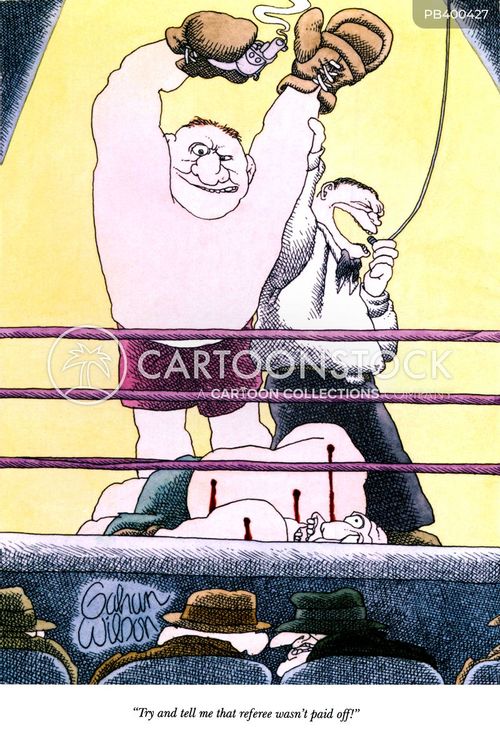Sports Gambling Corruption
Posted : admin On 4/8/2022- Sports Gambling Corruption Articles
- Sports Gambling Corruption Meaning
- Sports Gambling Corruption Definition
The Supreme Court’s decision to strike down the Professional and Amateur Sports Protection Act, or PASPA, is a victory for federalism and a huge opportunity to protect and reinvigorate sports while destroying a multibillion dollar black market.
- Corruption linked to sports betting involves teams or players who often cheat to lose. As will be seen below, this difference is fundamental to understanding the issues involved and the fight against fraud. Secondly, sports betting represents a worldwide market that is disproportional to the market for doping.
- Sports corruption goes back at least 2,800 years and some type of corruption will be with us for as long we continue to hold competitive sports. It is simply a part of human nature.
- A third member of Cincinnati’s City Council has been charged with taking bribes this year. Sittenfeld took $40,000 from undercover FBI agents to help on future projects, like a sports betting establishment. The Councilman could see up to 20 years in prison if found guilty, although he’s p.
Passed in 1992, PASPA forbade the vast majority of states from instituting their own legal sports betting regimes. Nevada is the only state in the country where sports betting is fully permitted. Montana, Oregon, and Delaware were able to grandfather specific games that were already legal.


It may be unable to adapt its Convention Against Corruption speedily enough to match the ever-increasing problem of corruption in sports. Besides which, one audience member pointed out that framing this as a gambling and organized crime issue might even render the UNCAC useless. In the wake of the Black Sox scandal, a sort-of sports betting cycle started: First comes the anti-gambling sentiment founded in morality and a general aversion to gambling. But then illegal sports betting persists in response to steadfast demand, aided by operators eager to fill the void.
The authors of PASPA hoped that banning sports betting would protect the integrity of the game by preventing match-fixing, corruption, and teenage gambling. But instead of protecting the integrity of sports, PASPA spurred an unregulated black market in betting now estimated to be worth more than $150 billion a year. Twenty-six years on, there is no evidence of PASPA preventing corruption, with point-shaving schemes still an unfortunate feature of sporting life.
The public is also in a state of confusion over the legality of sports wagering, with 62 percent unable to say whether or not sports betting is legal in their state. Nevertheless, betting is widespread with 30 percent of Americans saying they have bet on sports.
New Jersey voters tried to change this unhappy state of affairs, voting to amend the state constitution to legalize sports betting. When the legislature passed a law giving effect to the people’s decision, they were challenged by the nation’s biggest sports leagues. After several years of legal battles, the Supreme Court decided to hear the case. New Jersey argued Congress can prohibit individuals from betting on sports, but it cannot commandeer the states to prohibit sports betting against the will of the people.

In a 7-2 decision, the court decided for New Jersey “stating that PASPA violates the anti-commandeering doctrine.” Derived from the 10th Amendment, the anti-commandeering doctrine protects the states from unjustified federal intrusion in state affairs.
“The legalization of sports gambling requires an important policy choice, but the choice is not ours to make. Congress can regulate sports gambling directly, but if it elects not to do so, each state is free to act on its own,” wrote Justice Samuel Alito in the majority opinion. “Our job is to interpret the law Congress has enacted and decide whether it is consistent with the Constitution. PASPA is not.”
The court has not legalized sports betting per se, but has instead given each state the freedom to decide for themselves whether to embrace sports betting or abide by the status quo.
The benefits of legalization are many. Should sports betting be legalized nationwide, it is estimated that the gross domestic product would increase by $11.6 billion to $14.2 billion, 125,000 to 152,000 additional jobs would be created, and tax revenues spread across state, federal, and local municipalities would rise by $4.8 billion to $5.3 billion, according to Oxford Economics.

But the benefits of legalization go far beyond tax revenue and economic growth. Legalization would protect the integrity of sports by converting activity that currently occurs in the black market into a legitimate, well-regulated leisure activity. Sports leagues and associations will be able to work with sportsbooks and law enforcement to better identify instances of game-fixing. This is already common practice where sports betting is legal, such as the U.K and Australia.
Sports Gambling Corruption Articles
Consumers would also benefit. Legal sportsbooks would be heavily encouraged to disclose the odds being offered on various bets, as well as their payout rate, in order to attract bettors. This competition results in odds and payouts that are more favorable for bettors than the current black market system. Research by Nielsen Sports shows fans are more engaged when they bet on sports. More engagement would translate into higher viewership and other forms of sporting participation.
Sports Gambling Corruption Meaning
More than 60 percent of Americans think sports betting should be legal, and 70 percent believe it should be regulated by states, not the federal government. The Supreme Court has given states the opportunity to improve sporting life in America, raise revenue, and create jobs and prosperity in the process. States should seize this opportunity and bring America into line with the most successful sports betting markets in the world.
Sports Gambling Corruption Definition
This column first appeared in the Washington Examiner.